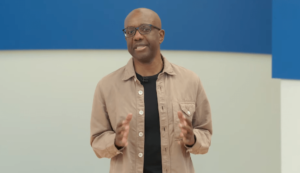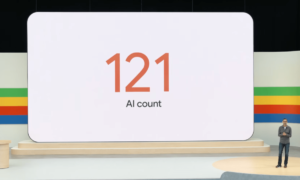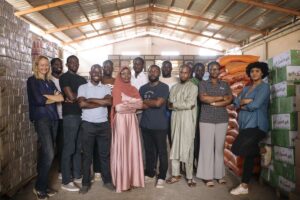
The crypto industry has long been criticized for its disconnection with the real world, but there are players who try to show that the underlying blockchain technology can solve some of our most pressing challenges in today’s society — especially in regions where basic infrastructure is lacking.
Akowe, a Lagos-based startup that is part of TechCrunch Disrupt’s 2023 Startup Battlefield 200, has developed a blockchain-based platform for issuing verifiable academic records. Speaking with TechCrunch in an interview, Akowe’s founder, Ayodeji Agboola, suggested that there’s a big demand for digital certificate verification systems in sub-Saharan Africa partly due to the difficulty of reissuing academic records and universities’ possessiveness of them.
“The university prides itself on the fact that a student passes through their school and that the certificate is issued to that member. They issue the certificate usually only once. If it gets lost, most times they don’t want to reissue; what they would give you is an affidavit. That singular nature of universities makes them very protective of certificates,” Agboola said.
In 2018, the founder, who ran a digital marketing business, started training a cohort of small business owners to use Facebook. By 2019, the program had trained 30,000 individuals and needed to prove people’s completion of the course.
“We couldn’t find a very simple tool to use, so I just decided, you know what? Let’s build this thing,” he said. “So this was late 2020. We built it out in three weeks. We demoed it. We tested it for our own certificates. It worked fine. I said, yeah, we’re in business.”
“In Nigeria, in Africa, [blockchain] needs to be a utility that people can actually see and use and solve their problems,” Agboola added.
The part where blockchain plays a key role is storage. To start, organizations upload their certificate templates and a list of recipients’ names, upon which Akowe automatically generates digital copies of the academic records for each individual. Say a recruiter or a visa officer needs to verify a person’s college certificate, they can then check all that metadata — including the URL of the certificate’s hosting location (usually a school’s website), university names, student names, courses, grades and graduating year — on the blockchain that Akowe uses.
Akowe has used Hyperledger, a permissioned blockchain, in the past but is now fiddling with a new ledger database solution released by Amazon, QLDB, which allows organizations to create centrally managed records.
“The immutable ledger gives it the security, the tamper-proof nature, and all of that you actually need so that you can then be very sure to verify anyone who wants to verify the credentials,” the founder explained.
Akowe, which means “clerk” in Yoruba, is still run by Agboola as a one-man, bootstrapped shop to this day with help from contract developers. It offers its platform to universities for free but takes a cut from the fees universities charge users. It’s in the final stages of setting up pilots with two institutions and is in talks with 15 others, according to the founder.
The challenge of the startup lies not in the technological part but rather in user acquisition. “In a private university, there is a lot more understanding of the business process. It’s profit-oriented and all of that . . . but public universities are where the bulk of people go. These are the most prestigious universities in Nigeria . . . and there’s a lot of red tape there that you need to navigate,” the founder said, adding that he’s been cautious with framing his business pitches because of the negative image of blockchain.
“In the beginning, we were always very open to say, hey, blockchain, blockchain. But we then found that [the universities] had a negative connotation or understanding of the concept because they had seen what happened with crypto, and as long as they are concerned, they are all one and the same. So we stopped putting blockchain ahead in the conversation,” he said.
“But when the conversation arises around safety, data, security, data, and privacy, then we say, this is what we’re doing. And it’s very different from crypto and all of that. And then that conversation is a lot better to have.”
Corrected the article to reflect that Akowe is Lagos-based.





